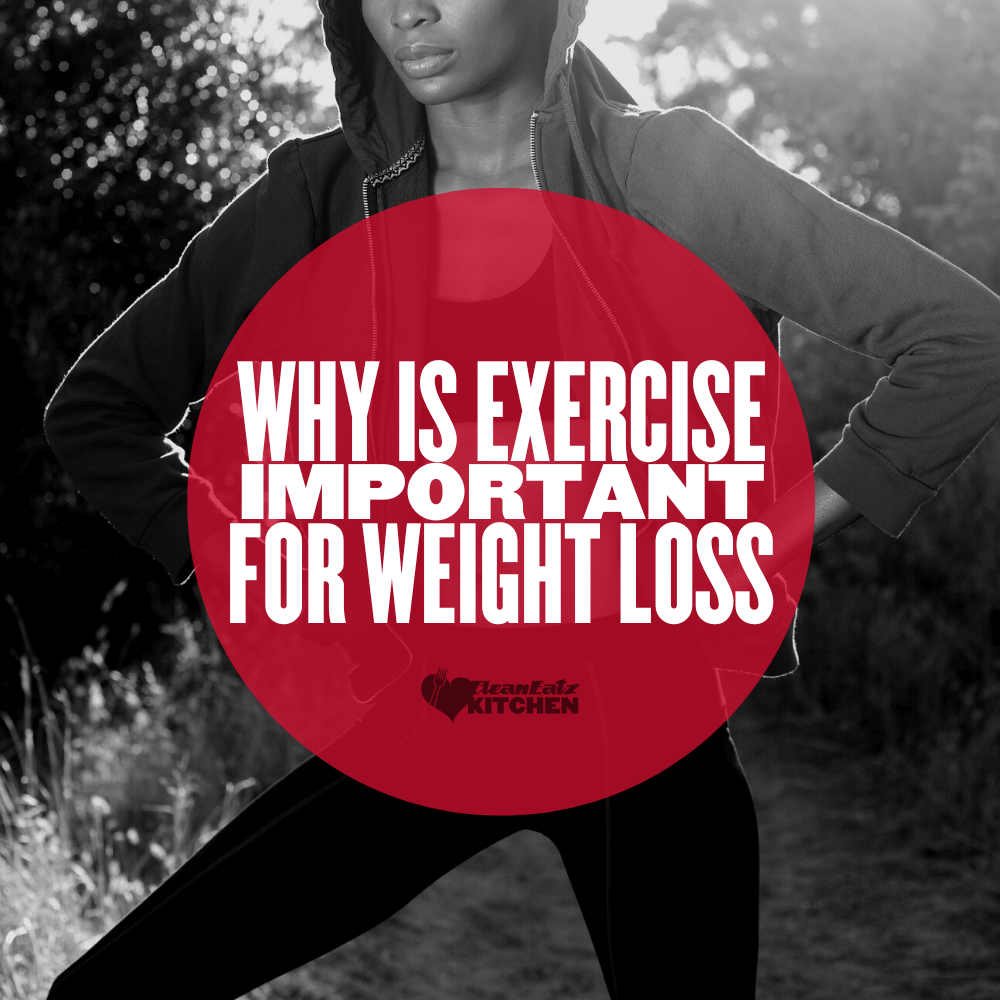
How Much is Weight Loss Surgery?
Weight Loss
14 minute read
Table of Contents
- What is Weight Loss Surgery?
- What Is The Safest Form Of Weight Loss Surgery?
- What Are The Benefits Of Getting A Weight Loss Surgery?
- Potential Risks Associated With Gastric Sleeve
- Other Popular Types of Weight Loss Surgery
- Factors Affecting The Cost of Weight Loss Surgery Cost
- Weight Loss Surgery Cost in The United States
- What Does Insurance Cover?
- What to Look for in a Weight Loss Surgery Insurance Plan
- Final Thoughts
- FAQ
- FAQs
Sometimes we can get so busy that our health can take a backseat. If this happens for years on end, we may be surprised one day when we look in the mirror at how much weight we’ve gained. We might ask ourselves jokingly, “How much is weight loss surgery?”
Keep reading this article to find out more about the following aspects of weight loss surgery:
- What is weight loss surgery?
- What factors affect weight loss surgery cost?
- Cost of weight loss surgery in US
What is Weight Loss Surgery?
When weight gain happens, we can decide to start getting our health and weight back on track, but it isn’t as easy as it sounds. In fact, it’s downright difficult. We can try every diet on the market with no success. We can try to be more active but our bodies are tired from carrying around all that extra weight.
Of course, all of these, including a detailed designed weight loss meal plan can be quite effective for some of us, however, others may find weight loss surgery the only possible solution for their problem.
Our doctor might give us an ultimatum. Either we lose weight or we may be in a very dangerous health situation. In fact, we may already be suffering from health conditions. Then we have to ask ourselves that same question seriously, “How much is weight loss surgery?”
Weight loss surgery, also known as bariatric surgery, is a medical procedure that helps individuals struggling with obesity achieve significant weight loss. It involves various surgical techniques, such as gastric bypass or gastric sleeve, to reduce the size of the stomach or reroute the digestive system.
When considering weight loss surgery, it's important to be aware of the associated costs.
What Is The Safest Form Of Weight Loss Surgery?
The safest weight loss surgery is vertical sleeve gastrectomy, also known as a gastric sleeve. A vertical sleeve gastrectomy is a type of weight-loss surgery that involves removing a portion of the stomach, reducing it to about 15% of its original size. This creates a narrow tube-like structure, or "sleeve," that limits the amount of food that can be eaten at one time.
The surgery is typically performed using laparoscopic techniques, which involve making several small incisions in the abdomen and using specialized instruments to remove the excess stomach tissue.
In addition to being generally safe, a gastric sleeve also has the advantage of not compromising your body’s ability to absorb nutrients.
What Are The Benefits Of Getting A Weight Loss Surgery?
Weight-loss surgery provides a wide range of advantages for people dealing with obesity and health problems associated with excessive weight. While the decision to undergo surgery should be made after careful consideration and consultation with medical professionals, here are some of the potential benefits associated with weight loss surgery:
Significant and Sustained Weight Loss: Weight loss surgery can help you achieve substantial and long-term weight loss, providing a chance to improve your overall health and quality of life.
Improvement in Obesity-Related Health Conditions: Weight loss surgery has been shown to have positive effects on various obesity-related health conditions, including type 2 diabetes, high blood pressure, sleep apnea, and joint pain. Many individuals experience a reduction in symptoms or even complete resolution of these conditions after surgery.
Enhanced Quality of Life: Losing excess weight through surgery can lead to improved mobility, increased energy levels, and enhanced self-confidence. Individuals often report a better quality of life, increased social interactions, and improved mental well-being.
Long-Term Maintenance of Weight Loss: Weight loss surgery is not a quick fix but a tool to support long-term weight management. It can help modify eating habits and promote sustainable lifestyle changes, increasing the chances of maintaining weight loss over time.
Reduced Risk of Obesity-Related Complications: Losing weight through surgery can reduce the risk of developing obesity-related complications, such as heart disease, stroke, certain types of cancer, and overall mortality.
Psychological and Emotional Benefits: Weight loss surgery can have positive effects on mental health, including improved self-esteem, and body image, and reduced rates of depression and anxiety associated with obesity.
It's important to note that while weight loss surgery offers significant benefits, it is not a guarantee of success. Consulting with a qualified healthcare professional can provide personalized guidance and help determine if weight loss surgery is the right choice for you.
Potential Risks Associated With Gastric Sleeve
While the gastric sleeve is effective at helping people lose weight and improve their health, it is not without risks and potential complications. Some of the risks associated with getting a gastric sleeve include
- Infection
- Blood clots
- Leaks from the stomach
- Stomach obstruction
- Low blood sugar (Hypoglycemia)
There is also a risk of malnutrition since the procedure removes a significant portion of the stomach and reduces the amount of food that can be eaten at one time. Additionally, the surgery can cause changes in the digestive process, which can lead to side effects such as nausea, vomiting, and diarrhea.
Other Popular Types of Weight Loss Surgery
Even though the safest weight loss surgery (gastric sleeve) is generally considered safe for most, it is not always the best option for everyone. If, for any reason, you are not suitable for the safest weight loss surgery (gastric sleeve), below are some of the options you can consider:
1. Gastric bypass surgery. This is the most common type of weight loss surgery. It involves creating a small pouch at the top of the stomach and connecting it directly to the small intestine. This bypasses a large part of the stomach and the first part of the small intestine, which reduces the amount of calories and nutrients that are absorbed.
2. Gastric band surgery. This involves placing a band around the upper part of the stomach, creating a small pouch that holds food. The band can be tightened or loosened to adjust the size of the pouch, which can help people feel fuller after eating smaller amounts of food.
3. Duodenal switch. This is a complex surgery that involves both a gastric sleeve and a bypass of the small intestine. It can be an effective option for people who are severely obese, but it also carries a higher risk of complications.
4. Vagal blockade. A vagal blockade is a medical procedure that involves blocking the vagus nerve, which is a major nerve that signals the brain when you are full. A vagal blockade involves placing an electric device, similar to a pacemaker, along the vagus nerve. The device is meant to control the impulses that the nerve transmits to the brain. While this technology shows great promise, it is still very new and its long-term side effects remain to be seen.
Factors Affecting The Cost of Weight Loss Surgery Cost
Remember, the cost of weight loss surgery is an investment in your health and well-being. It's crucial to weigh the financial aspect alongside the potential benefits and improved quality of life that can result from successful weight loss.
Several factors can influence the cost of weight loss surgery. Here are some key factors to consider:
Type of Procedure: Different weight loss surgeries have varying costs. Procedures such as gastric bypass, gastric sleeve, or gastric banding may have different price ranges based on their complexity and requirements.
Surgeon's Expertise: Highly experienced and reputable surgeons may charge higher fees for their services. Their expertise and track record can contribute to the cost of the procedure.
Location: The geographical location of the surgery can affect the cost. Areas with higher living expenses or healthcare costs may have higher surgical fees.
Insurance Coverage: Insurance coverage varies widely, and the extent of coverage for weight loss surgery can significantly impact out-of-pocket expenses. It's important to check with your insurance provider to understand what expenses they may cover.
Weight Loss Surgery Cost in The United States
So, how much is weight loss surgery? While the cost of weight loss surgery depends on many factors, it's essential to know that, in the United States, most people who undergo bariatric surgery are uninsured or have Medicaid or Medicare coverage.
The average cost of weight loss surgery is between $20,000 and $25,000.
If you're considering weight loss surgery but don't have insurance coverage or can't afford the typical costs associated with a procedure like this one—and you live in a state where there aren't any low-cost options for those without insurance—you may want to consider looking into getting financial help from your state's Medicaid program.
Some states offer bariatric surgeries at no cost if they're medically necessary (and yours probably is). However, keep in mind that not all states offer this type of assistance and there may be waiting lists involved.
You can always ask your doctor to decide on the safest weight loss surgery for you and whether he or she knows of any programs that might help cover some or all of your expenses related to bariatric surgery; sometimes they'll even approach an organization directly on your behalf (or refer you directly).
The Cost of a Gastric Bypass
On average, gastric bypass surgery costs about $30,000 in the United States. However, if you live near the border and travel across it to Mexico or Costa Rica for surgery, you may be able to save up to 80 percent of what you would spend in the U.S.
The price of gastric bypass surgery depends on several factors: location (Mexico or Costa Rica vs. the U.S.), surgeon's fees, and whether it includes overnight recovery at a nearby hospital.
The Cost of Lap Band Surgery
The cost of lap band surgery can vary depending on the location where you have it done and whether or not you have insurance coverage.
For example, if you have a high-deductible insurance plan in which your deductible has already been met, then the procedure might cost less than $5,000 out-of-pocket.
However, if your financial situation is less certain (i.e. if you don't know whether or not your insurance will cover the procedure), then getting a quote from more than one surgeon might be wise—the quotes may differ widely even though they're both in your area.
Also, keep in mind that weight loss surgery prices are often higher in urban areas like New York City or Los Angeles; this is because there are more surgeons available who perform these types of operations regularly, so competition drives down costs for consumers.
The average price tag across all U.S cities was about $17,000 but could range as low as $0-$12k depending on where you live: for instance, most people seeking bariatric surgery will find that Arizona offers far cheaper options than New York City (where costs tend to be higher).
Cost depends on where you live, where you have the procedure done, and whether you have insurance coverage
The cost of weight loss surgery depends on multiple factors, including where you live and where you have the procedure done. In addition, whether or not you have insurance coverage will also impact how much weight loss surgery costs.
In general, patients can expect to pay between $15,000 and $30,000 for bariatric surgery—but those with insurance may be able to get the procedure covered by their plan. For example:
- In New York City and San Francisco, the average price for gastric bypass surgery is about $26,000—but with insurance from Blue Cross Blue Shield (BCBS), BCBS' patients only spend about 20% in out-of-pocket expenses (or about $5K).
- With Medicare Advantage plans offered through Aetna, Humana, or Cigna Health Insurance Company (among others), patients can also find significant savings if they choose to go through with weight loss surgeries—and most of these plans offer an extra incentive in terms of reduced copays or deductibles when compared with traditional HMOs that don't offer this type of benefits package at all!
What Does Insurance Cover?
When it comes to insurance coverage, it's important to understand what is covered by your particular plan. Generally, insurance companies will cover a portion of the costs associated with weight loss surgery, including pre-operative tests and evaluations as well as the procedure itself.
However, some insurers may not cover the entire cost of the procedure or may require that you meet certain criteria in order to be approved. Common criteria include:
- A BMI of 40+, or 35+ with comorbidities
- Documentation of prior attempts at weight loss, such as diet and exercise programs, or other intervention attempts
- A referral from your primary care physician
It's also important to note that insurance companies may impose limits on the number of weight loss surgeries they will pay for in a certain timeframe. Be sure to check with your insurance provider to understand exactly what is covered—and what isn't.
What to Look for in a Weight Loss Surgery Insurance Plan
When it comes to finding a weight loss surgery insurance plan, there are a few key things you should look for.
Plan Type
The first thing to consider is the type of insurance plan you need. Some plans only cover specific types of weight loss surgeries and don't cover some procedures, like gastric bypass or duodenal switch. Make sure you research the different plan types and find one that covers the procedure you want.
Coverage Levels
Next, look at the coverage levels for your plan. Not all plans offer the same level of coverage, so be sure to read the fine print and make sure your surgery is covered for any complications that may arise during or after your surgery.
Copay & Deductibles
Finally, it's important to understand how much out-of-pocket expenses you'll be responsible for when getting weight loss surgery. Copays are usually required before any treatment can begin, while deductibles are typically paid after a certain amount is reached in healthcare costs each year. Knowing what these costs will be beforehand can help you save money on your weight loss surgery.
Final Thoughts
In conclusion, weight loss surgery is a viable option for individuals struggling with obesity and seeking significant weight loss. How much is weight loss surgery? The cost of weight loss surgery varies based on factors such as the type of procedure, surgeon's expertise, location, and insurance coverage. It is crucial to carefully consider the financial aspect alongside the potential benefits and improved quality of life that can result from successful weight loss. Exploring insurance coverage, state Medicaid programs, or seeking affordable options abroad can help mitigate the financial burden. Consulting with healthcare professionals and specialized clinics will provide accurate cost estimates and guidance for making informed decisions about weight loss surgery. Remember, investing in your health and well-being can lead to transformative results.
FAQ
What weight loss surgery is covered by insurance?
Coverage varies by insurance provider and policy. Commonly covered procedures include gastric bypass, gastric sleeve, and adjustable gastric banding (lap band). Check with your insurance provider for specific coverage details.
What is the safest surgery for weight loss?
Safety depends on individual circumstances. Lap band surgery is considered safe as it's reversible, but its effectiveness may vary. Consult with a healthcare professional for personalized advice.
How to get weight loss surgery covered by insurance?
Verify coverage, document medical necessity, obtain pre-authorization, follow insurance guidelines, and submit required documentation according to your insurance provider's requirements.
How to tell if someone had weight loss surgery?
Physical signs may include significant weight loss, body shape changes, reduced appetite, or a smaller stomach size. Respect privacy and consider asking the person directly.
How to get approved for weight loss surgery?
Consult with a specialist, undergo a medical evaluation, provide the necessary documentation, follow insurance procedures if applicable, make lifestyle changes, and prepare for surgery in collaboration with your healthcare team.
Related Articles
Is Rice Good for Weight Loss?
7 minute read
Losing Weight Without Exercise
13 minute read



